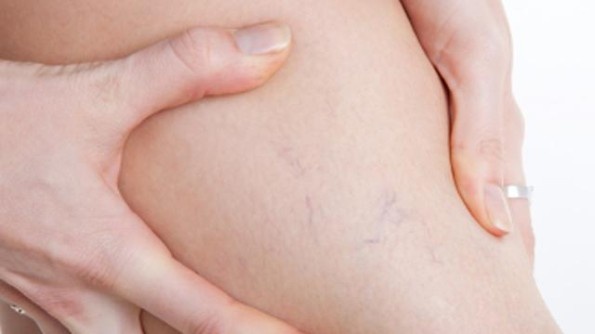Many people assume that their legs are swollen because they ate too much salty food at lunch or maybe it’s a side effect of their medication. While the answer is clear cut most of the time, there are some people who suffer from swollen legs and ankles in one or both legs without any explanation. Pain and swelling are two of the main complications of vein disease, although many people aren’t aware of their association with vein disease. Knowing your risk and seeking out vein disease treatment in Chicago for your swollen extremities could save you from more serious problems down the road.
What do residents of Chicago, IL need to know about swollen legs and ankles?
Swelling in the lower extremities is caused by a buildup of fluids. Unhealthy veins aren’t able to carry blood properly back up to the heart, so the blood settles and pools in the veins. This can lead to varicose veins both near the surface of the skin or deep under your skin and muscle tissues. The veins may not function properly because of hardened blood vessels or a blockage (blood clot), but no matter the reason, fluids can build up around the affected areas.
When a blood clot occurs in the veins deep inside the legs, it is a condition called deep vein thrombosis, or DVT. The clot blocks the flow of blood through the veins, which is bad enough because blood flow is how your body is oxygenated. Even more trouble arises when the clot breaks free from the vein wall and travels through the vein and into a major organ, a condition that can be debilitating or fatal. Most of the time, the only symptom of DVT is swelling in only one of your legs, but sometimes pain and unexplained fever can occur along with it.
The swelling itself causes problems if it’s left untreated for too long, such as skin changes, discomfort and infection. The fluids that fill the affected area stretch out the skin, making it tight and irritated. Over time, the stretching makes the skin fragile, dry and easy to tear. Any open wound has the possibility to become infected by harmful bacteria. It’s important to keep the area well moisturized and clean in order to deter infection. Keeping the swollen leg elevated may also help alleviate the swelling until you get help from your doctor and more specific instructions.
My legs hurt! Do I have vein disease?
It’s possible that your leg pain could be caused by vein disease, especially if you fall into a high-risk category. Because veins tend to harden with age, the risk for developing vein disease rises with every passing year. Your risk is also higher if someone else in your family developed it or if you’re a woman. Lifestyle factors, such as being sedentary, smoking or standing for long hours at work, also raise your risk for vein disease.
If you suspect vein disease to be the cause of your distress, it would be a good idea to consult an expert. Our medical director, Dr. Ramon Castro, is a top Chicago vein specialist who is an expert in the latest vein treatments, including vein laser surgery and other minimally invasive techniques. For more information, or to schedule your appointment, call us at 773-283-7887. We look forward to your call.

